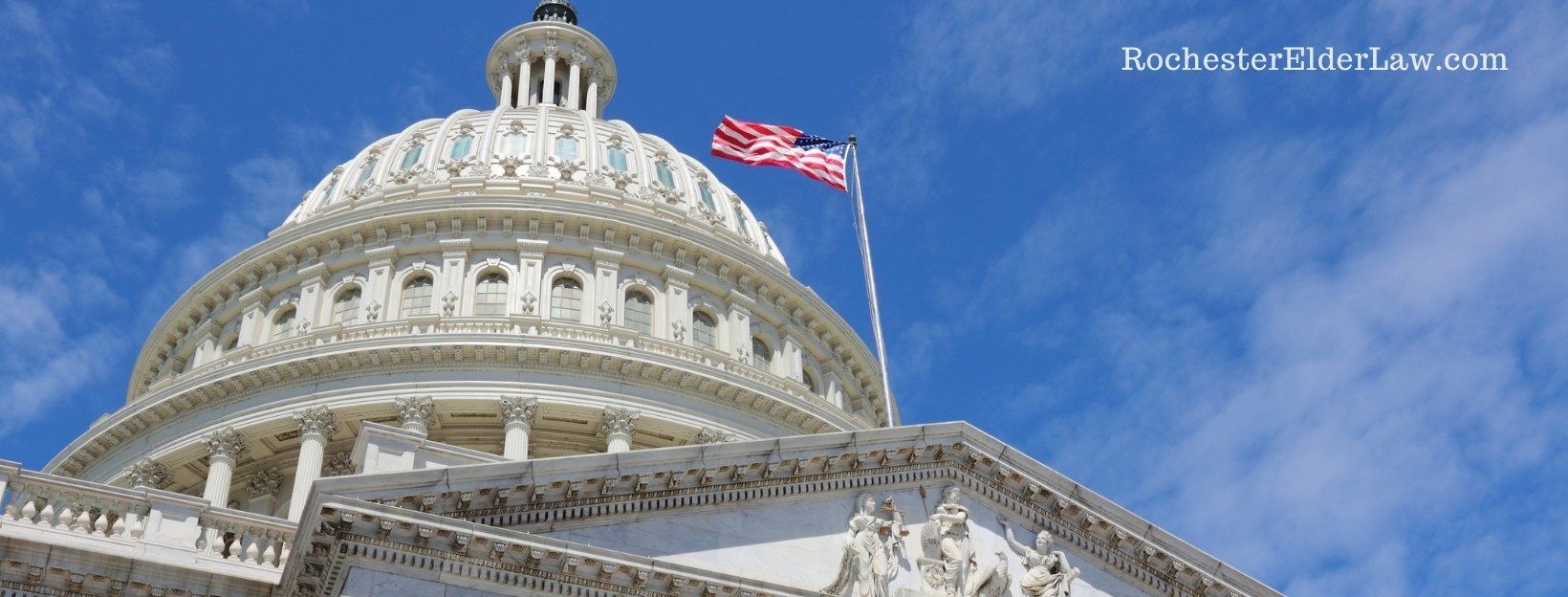
Sen. Bernie Sanders and Rep. Jimmy Gomez introduced a new bill, “For the 99.5% Act,” into Congress on March 25 th , 2021. The bill’s current form is only 18 pages long, but its potential impact on federal estate and gift tax laws significantly affects estate planning. While it is impossible to determine if the bill will pass into law, some of the act’s key elements may inspire Congress to increase the estate tax using other mechanisms should this bill fail. They might also seek to remove well-known tools like trusts to bypass taxation upon your death to generate revenue for federal programs.
In a letter to Congress, 51 national organizations supporting Senator Sanders and Representative Gomez estate tax reform urge Congressional members to adopt the legislation. The letter cites that the richest one percent of Americans own nearly 32 percent of the nation’s wealth, and the bottom 50 percent own just 2 percent. This stark inequality creates constraints and financial growth limitations for the majority of Americans.
The Sanders-Gomez proposal wants to reverse this trend and increase the estate tax rate currently in place, topping out at 65 percent on estates over one billion dollars. In contrast, President Biden’s campaign estate tax plan would retain the 40 percent estate tax rate currently in place. Much is unknown, but one thing is clear; change is coming to the inheritable asset and gift tax classes.
The Joint Committee on Taxation ( JCT ) believes the Sanders bill can raise 430 billion dollars over ten years. Some of the bill’s main provisions that generate this revenue include:
- Gift tax exemption reduction from 11.7 million dollars to 1 million dollars annually
- Federal estate tax exemption reduction from 11.7 million dollars to 3.5 million dollars
- Increase in gift and estate tax rates from 40 percent up to a top rate of 65 percent
- Elimination of the short-term Grantor Retained Annuity Trust ( GRAT ) with no “grandfather” exemption for existing trusts
- Grantor trust inclusion in a decedent’s estate. Many irrevocable trusts are grantor trusts for income tax purposes, although trust assets are excluded from the grantor’s estate for federal tax purposes. Enacting “For the 99.5% Act” into law will end the Grantor Trust type of estate planning. Additionally, without very careful planning, Irrevocable Life Insurance Trusts will no longer provide shelter for life insurance proceeds from estate taxation
- Elimination of minority discounts on valuations for the transfers of non-business assets held in a business entity such as a partnership or limited liability company controlled by or majority-owned by members of the same family
- Elimination of certain marketability discounts for passive assets not used in an active trade or business
- The implementation of a federal 50-year rule against perpetuity will result in estate taxation at some point for Dynasty Trusts
The 99.5 Percent Act will provide beneficial valuation rules for small businesses and farms as well as land subject to qualified conservation easements. The Sanders-Gomez bill will give family farms extra protection by allowing lower assessed value on farmland up to three million dollars, exempting even more farms from tax.
There is overwhelming public support to raise taxes on Americas’ wealthiest. Still, some of these inheritance tax rate changes will affect the so-called “middle-class millionaires” who will need to restructure their current estate plans if the 99.5% Act is passed into law. The proposed tax rate of 45 percent on estates between 3.5 to 10 million dollars will affect family generational wealth more so than the top tax rates for mega multi-millionaires and billionaires.
If you have questions about this pending legislation and whether it could impact you, please don’t hesitate to reach out. We would be happy to discuss planning options with you to minimize your tax liability.
more news you can use



Still have questions?
Tell us about your situation.

Centrally Located in Brighton
near Cobbs Hill:
1399 Monroe Avenue,
Rochester, NY 14618
Map & Directions
Weekly News & Updates
Subscribe now and get our FREE Guide, "The Top Eight Mistakes People Make with Medicaid Qualification"
Rochester Elder Law
All Rights Reserved
Legal Disclaimer: We have organized and prepared this website to provide general information about our firm. Content is subject to change without notice. The material presented here is not legal advice and is not to be acted on as such. You should consult an attorney for advice regarding your individual situation. We invite you to contact us and welcome your calls, letters and electronic mail. Viewing this web site or contacting us does not create an attorney-client relationship. Please do not send any confidential information to us until such time as an attorney-client relationship has been established. This site may contain attorney advertising. However, prior results do not guarantee a similar outcome.







